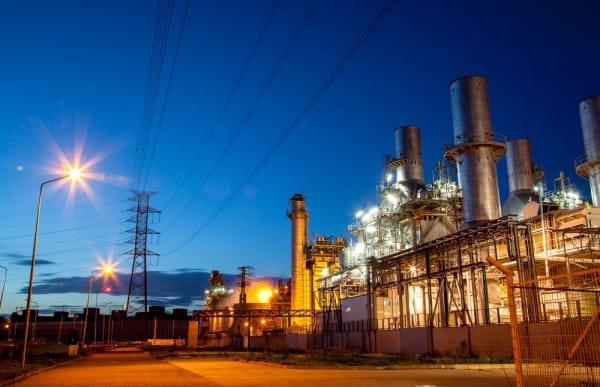Rising Energy Demands Will Be Met With New Nuclear Energy Projects


Credit: nrqemi / Shutterstock.com
The U.S. Department of Energy projects that U.S. electricity demand will rise 28 percent by 2040. The nation will subsequently need hundreds of new power plants in order to provide electricity to Americans as well as to sustain economic growth.
According to the Nuclear Energy Institute, maintaining nuclear energy’s current 20 percent share of generation will require building one new reactor each year starting in 2016, resulting in 20 to 26 new units by 2040. Currently, there are 16 companies nationwide studying, licensing, or building over 30 nuclear power reactors, with 5 new nuclear plants under construction.
In addition to large nuclear plant projects, the NEI also hopes to expand potential nuclear markets through the development of small-scale reactors, according to a briefing paper released by the organization in June 2013:
“Small reactors in scalable facilities can fill a broader spectrum of new energy demands as well as replace inefficient electricity facilities, provide process heat for diverse industrial applications and generate electricity for remote locations. Modules can be added as needed—built in controlled factory settings and easily transported to the site.""Together with large reactors and other low-carbon energy options, such as wind and solar, small reactors contribute to a full line of safe, secure carbon-free energy sources.”
“It’s an opportune moment to take step back and say, ‘Look. If we’re going to build the kind of low-carbon future we need, I don’t see how to get there without significant reliance on nuclear energy,’” Deputy Secretary of Energy Daniel Poneman said in a statement to the OC Register. “For the first time in many, many years, we’re seeing a strong emerging consensus that it’s in the best interest of the country. We should take this opportunity to get it right, and do so with the stewardship of the environment, and preventing proliferation, uppermost in our minds.”
However, until the United States is able to find and approve a technology for the permanent disposal of nuclear waste -- a process that is expected to take at least 35 years -- California will not allow for any such development.
Since 1976, California has had a moratorium on building new nuclear plants. Although many attempts have been made over the years to challenge the ban -- in both the courts and the legislature, as well as the initiative process -- none have proven successful.
In February, California cleared a 2014 initiative that would shut down the Diablo Canyon and San Onofre plants until a disposal method is approved. However, the initiative's sponsors did not gather enough signatures for its deadline and it will not appear on the 2014 ballot.
The initiative is sponsored by Ben Davis Jr., author of an initiative that prompted the 1989 closure of the Rancho Seco nuclear plant.
For the state to become accepting of nuclear power “we need to change the law to make it no more onerous to build a nuclear power plant than it is to build a natural gas power plant,” according to former California Assemblyman Chuck DeVore. He is “optimistic on the long term prospects because it makes such logical sense,” but “not optimistic on the short term prospects.”



